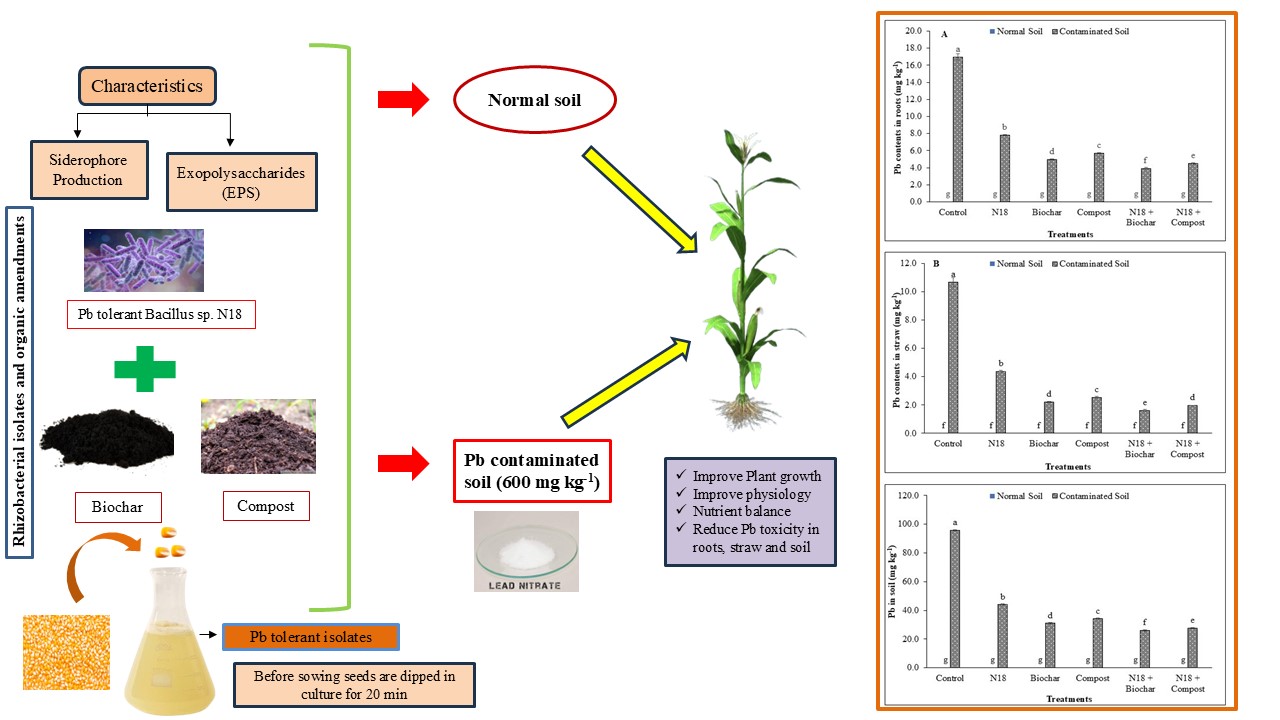
Heavy metals like Pb, Cd, As, and Ni are becoming major environmental pollutants affecting crop productivity. The current study focused on the integration of biochar, compost, and Pb-tolerant Bacillus sp. (N18) to mitigate the hazardous impacts of Pb and improve maize growth under normal and Pb-spiked contaminated soil. There are six treatments in both normal and contaminated soil, arranged in CRD (completely randomized design) under a factorial setting with three replications. The findings confirmed the synergistic role of the combined application of biochar, compost, and Bacillus sp. (N18) in improving the growth of maize under both soils. The use of biochar+ Bacillus sp. (N18) in contaminated soil significantly enhanced maize growth viz. shoot, root length and their dry weight, antioxidant activity like SOD, POD, CAT, APX by 50.9, 82.6, 73.3, 46.7, 51.6, 42.5, 35 and 45.4%, respectively, over control. In contrast, significant reduction in the Pb uptake in maize root and straw under combined use of biochar and Bacillus sp. (N18), with values of 61.9 and 65.5%, respectively, while after harvest, extractable Pb contents in soil were also reduced by 79.7% over control. The bioaccumulation and translocation factors were also decreased by the use of biochar + Bacillus sp. (N18), which is 44.7 and 35.2% as compared with control. This dual behavior by synergizing organic amendments (compost and biochar) and Bacillus sp. (N18) can efficiently bioremediate the Pb toxicity in soil and improve maize production, which can help developing sustainable bioremediation methods.
Total file downloads: 26